Tag: Illegal Wildlife Trade
Two exotic birds, whose parents were rescued from illegal wildlife traders, have hatched at the zoo.
Lily’s determination
All over Indonesia, forests are falling silent as the songbirds that once thrived there are threatened with extinction.
To raise funds and awareness for songbirds, 8-year-old Lily Owen was determined to take on a duathlon.

Every penny counts
Lily said: ‘I am very proud to have finished my very first duathlon and raise £178.39, because I know every penny will help save songbirds.’
‘Afterwards, I gave a talk at my school to tell everyone what I’d done and how it will make a difference. I hope other people will join in too.’
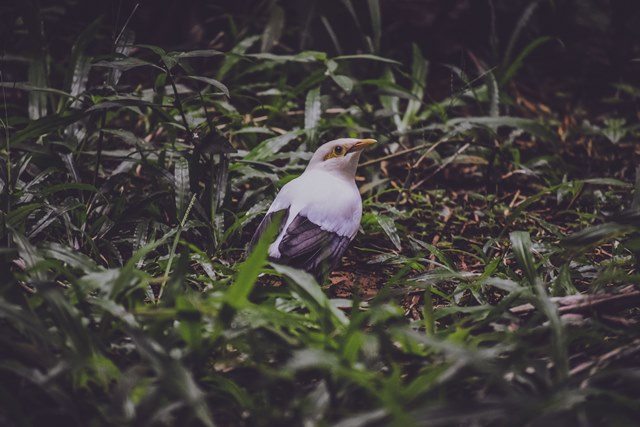
Running, cycling and then back to running again
‘I had never done anything like this before, so I’d been practising hopping on and off my bike in the garden.’
‘On the day, even though it was very hot, I knew I was ready and I could make a quick change between running and cycling, then back to running again.’

For the songbirds!
‘The hardest part was at the very end. I got a bit of stitch, but I had to keep going for the songbirds!’
Wearing her homemade songbirds t-shirt, Lily ran 200m, cycled 1km and finally ran 500m, all in 9mins and 59 seconds.
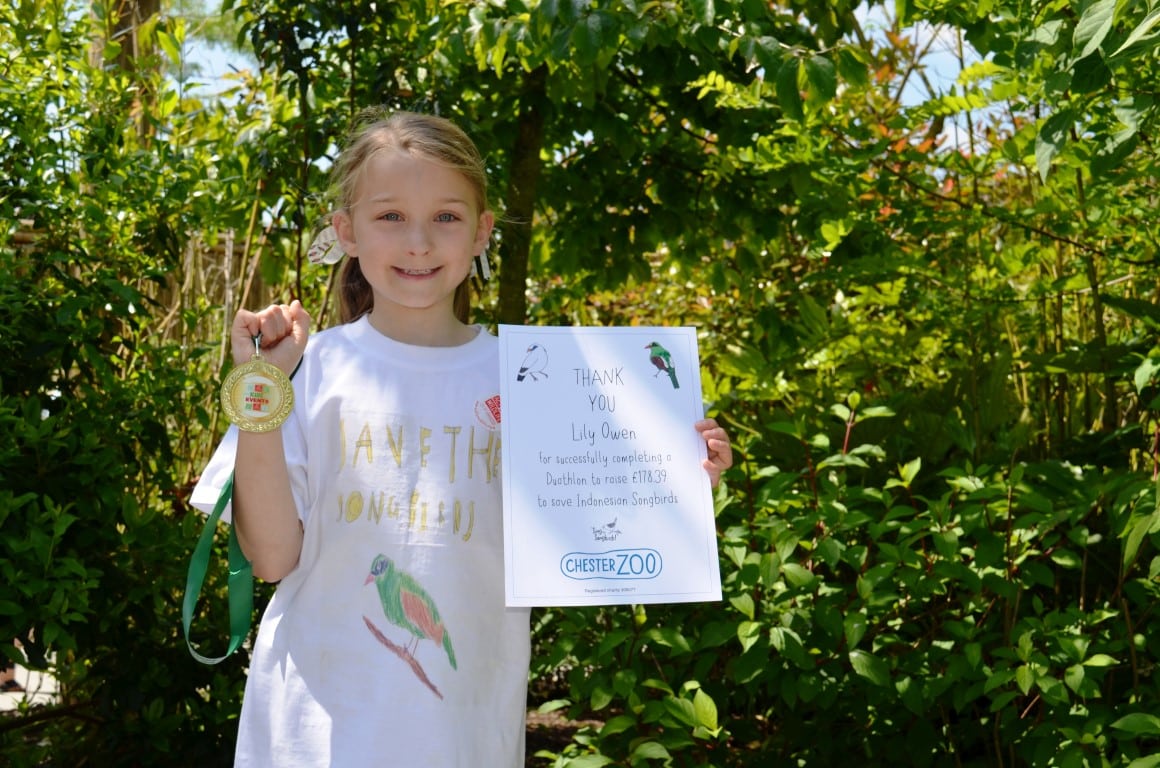
Conservationist of the future
As the daughter of our very own Chester Zoo Curator of Birds Andrew Owen, Lily is already following in her father’s footsteps and preventing extinction.
Well done Lily!
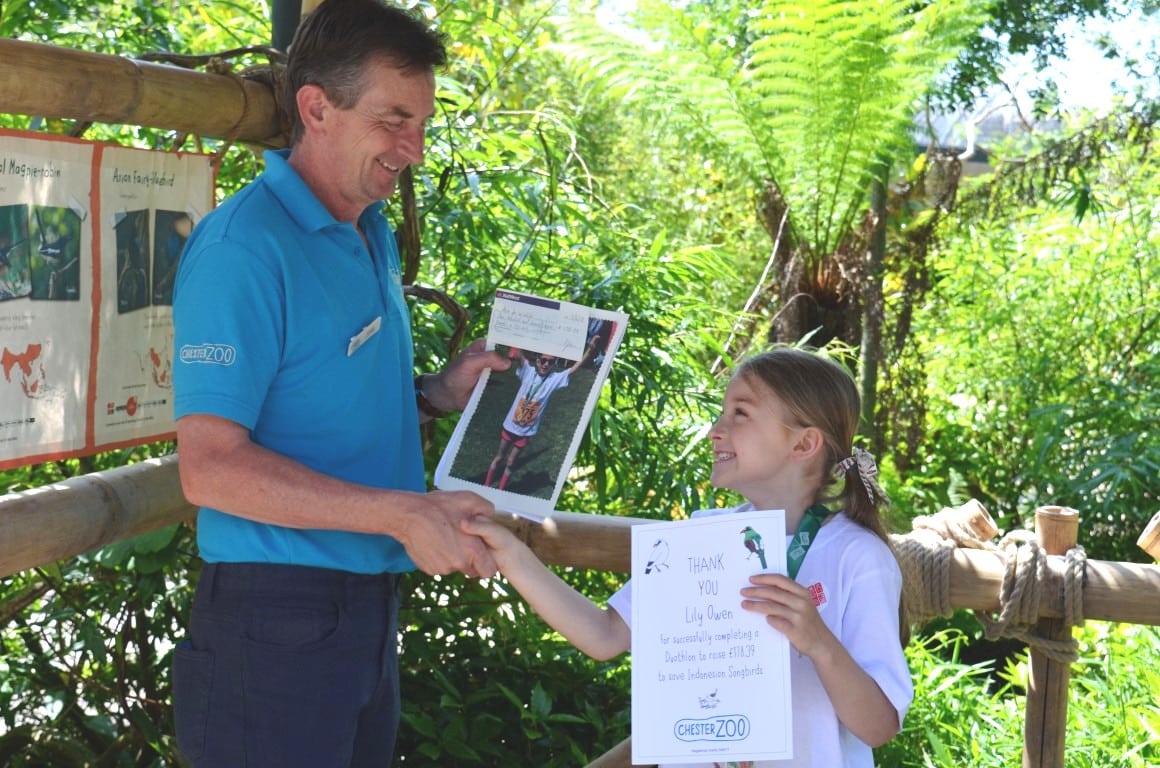
Jill Wright, Head of School at Whitefield Primary School, tells us more about how the school have taken on our Sing for Songbirds campaign and the experience they’ve had:
Whitefield School is situated in one of the most deprived wards in the country where over half the children live in poverty. Unemployment, crime and poor health feature significantly in the lives of many of our children. Their life experiences are extremely limited. It is, therefore, the school’s role to educate the children not only in formal, national curriculum subjects, but also give them access to life experiences and show them that there are possibilities for their future beyond their local community. For these reasons it is important for the school to work in partnership with other organisation. The Safari Ranger visits provided the children with access to expert knowledge and role models for future careers.
“The visit to the zoo was key to the success of the project. The children were able to see the animals they had been learning about and apply their knowledge and understanding of conservation to other animals. It also supported their spoken language skills and development of vocabulary. This was evident in philosophy discussions which took place in classes throughout the project.”
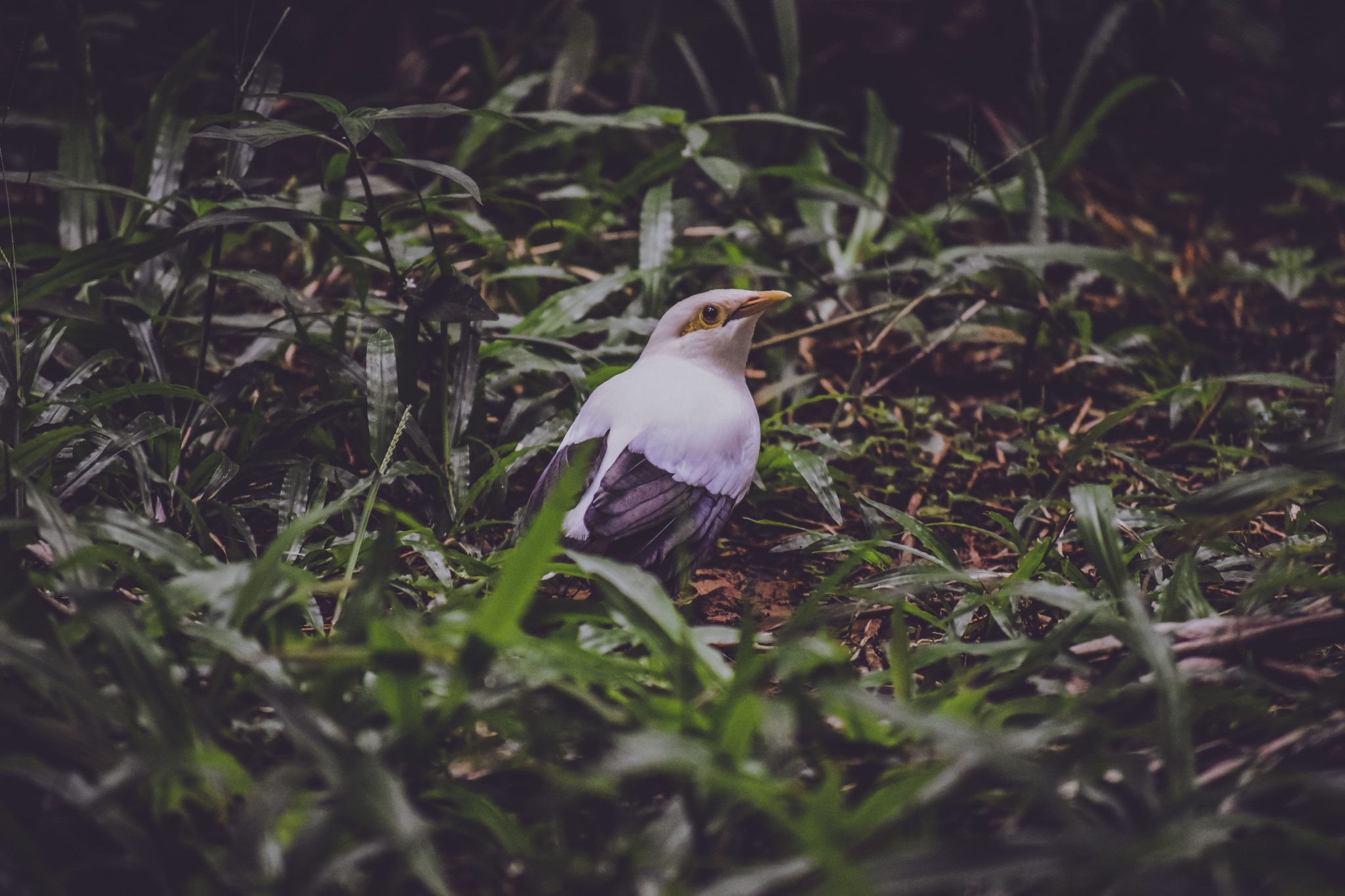
The children, teachers and families have a much better awareness of conservation through working on this project. ‘Songbirds’ is not an identified area of the current curriculum. Some year groups do focus on conservation so this fitted in with their learning. However, we decided to suspend out ‘normal’ curriculum for two weeks and focus on Songbirds. This allowed us to teach English, maths, geography, science, art, philosophy and other skills through the topic of songbirds and the children were highly motivated. We also had parent workshops throughout the two weeks where parents came to join in activities and learn about conservation from their children. This, combined with the free family tickets to the zoo meant that the project reached beyond the classroom and into the wider community.
Many of us take a day out to the zoo with family for granted. We know that our children will have the opportunity to learn about the wider world through giving them experiences beyond school. However, in areas of deprivation this is often not the case. It is up to schools, working in partnership with organisations such as the zoo to open the minds of children and families to global issues and wider opportunities. This project has certainly done that and I would have no hesitation in recommending this project to other schools.
“It has been a privilege to be involved in the songbirds project and we would welcome any further opportunities to work in partnership with the zoo. Thank you for providing an outstanding educational and life experience for the children of Everton.”
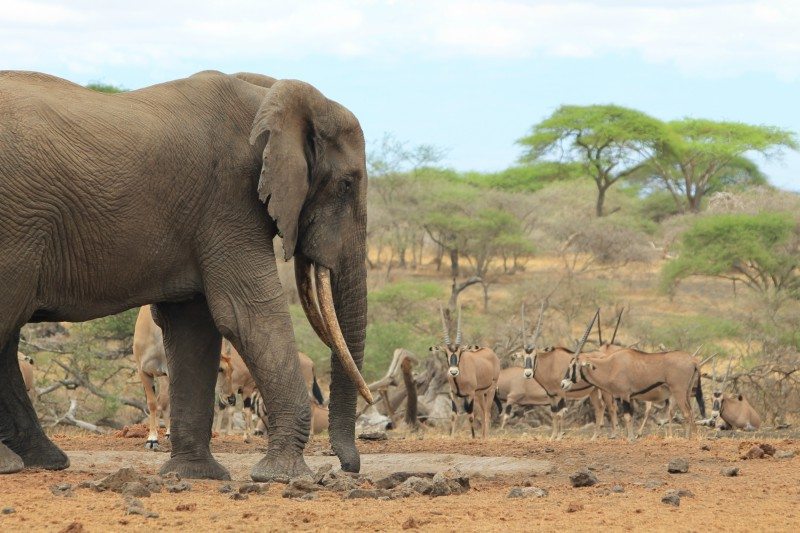
A recent continent wide survey revealed that African elephants are declining by 8% per year, due mainly to poaching – that’s 27,000 slaughtered every year. Asian elephants have declined by more than 50% over the last three generations. Continued trade in items made from ivory fuels demand and encourages illegal poaching. We now call on all parties to ensure the proposed legislation goes far enough to make a major impact on this crisis. Here at Chester Zoo we will be bringing leading experts together for an important symposium on the illegal wildlife trade, on Saturday 7 October, chaired by TV wildlife presenter Steve Leonard.
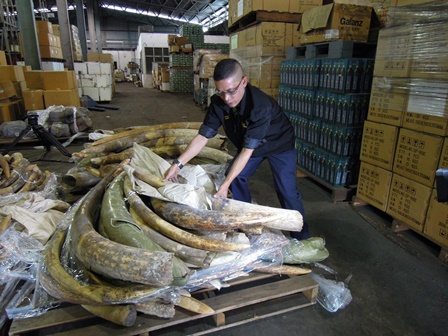
Illegal wildlife trade is the greatest direct threat to many of the world’s most iconic species, and can include anything from live animals and plants to a range of products including ivory, skins, medicines and other trophy items. Find out more information about this and how to help.
Happening on a massive scale, it’s actually the fourth most lucrative transnational crime and is worth up to a staggering $23 billion annually according to the IUCN.
The global wildlife population is estimated to have declined by almost 60% between 1970 and 2012. But there is still time to act and each of us can play a role in fighting illegal wildlife trade.
Wildlife Witness is an innovative app developed by Taronga Zoo in partnership with TRAFFIC, the wildlife trade monitoring network. Being the first global community action tool in the fight against illegal wildlife trade, the app allows tourists and locals to report wildlife trade in South East Asia and reports are then sent to Wildlife Crime Data Analyst who can then act upon it.
In 2016 Chester Zoo became the official European ambassador for the app and is working towards promoting Wildlife Witness in the UK and Europe to increase the awareness around both the issue of illegal wildlife trade and the existence of the app.
With an average of 4.9/5 stars on Google Play, the app has been very well received by the public with users commenting:
“It’s reassuring to know that all you need is a smartphone to report individual cases of illegal or unethical wildlife trade and activities. Make a difference one step at a time.”
Between April 2015 and March 2017, a total of 3,868 apps were downloaded on iTunes with 1,500 downloads recorded in Australia where the app was initially launched. The UK is catching up fast though with already 710 apps downloaded within a year of being promoted in the country.
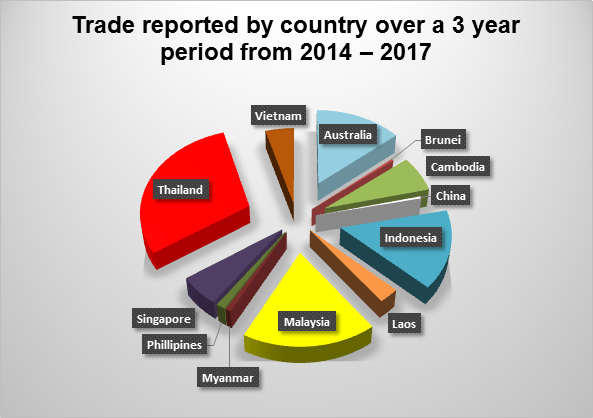
The Wildlife Witness app has been used to report potential illegal trade activities in 12 countries already with activities being mainly reported in Thailand, Malaysia and Indonesia. All these reports are helping TRAFFIC to prioritise response action, improve their understanding of illegal wildlife trade but also highlight the areas in need for increased enforcement resources.
As part of her job as the Field Programme Coordinator for South East Asia at Chester Zoo, Johanna Rode-Margono spends quite a bit of time working in Indonesia with our project partners. On a recent trip she witnessed a wildlife crime and used the Wildlife Witness app for the first time. Below she shares her experiences with us:
“My last trip led my team to the beautiful National Parks Baluran and Alas Purwo in East Java, to discuss future conservation projects protecting the charismatic banteng, a wild cattle species that can be found in these parks.
“On the way back to the airport I tried to relax a bit before the two flights back to Jakarta. While day-dreaming I looked out of the car window, and suddenly saw a cage with a huge bird passing by. I decided to ask the driver to turn around to let me have a closer look. I got out of the car and it turned out that the bird with the big beak was a wreathed hornbill, sitting in a small cage by the side of the road. I talked to the owner and he explained that he caught the bird himself in the National Park Baluran, when the hornbill was just a chick.
“He raised the bird that he called “Baron” and had kept him since a year. It seemed that the owner loved the hornbill and took reasonably good care of him; he fed him a variety of fruit and even let him fly free sometimes. The owner stated that Baron always came back to him.
“The wreathed hornbill is an endangered species protected by Indonesian law, with heavy fines and even prison waiting for a person who keeps this species illegally. I had just downloaded the app ‘Wildlife Witness‘ that was created by Taronga Zoo in Australia together with TRAFFIC, an organisation who works on illegal wildlife trade. Chester Zoo is promoting this app as the European partner.
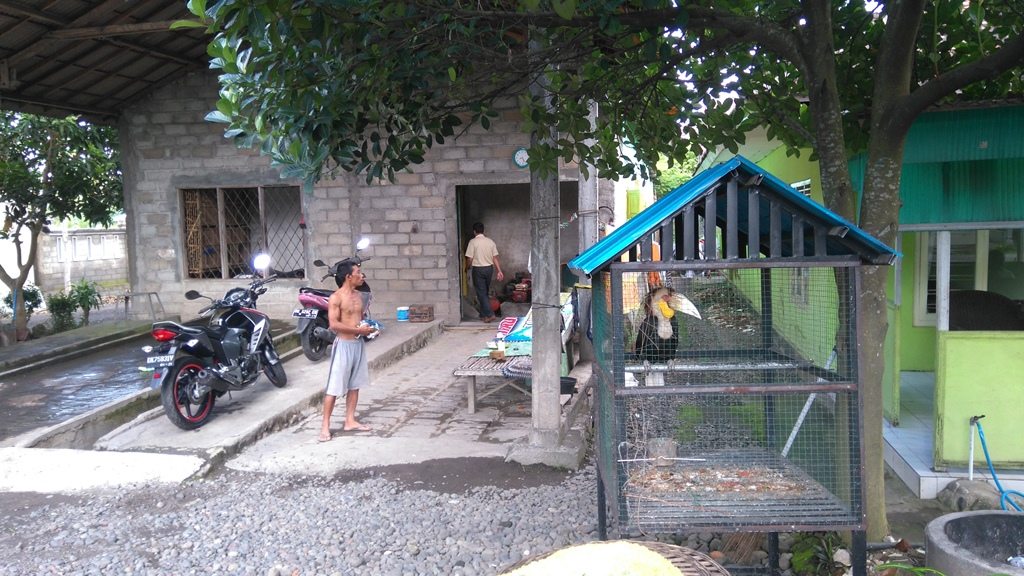
“Wildlife Witness can be used to report illegal wildlife trade in South East Asia by providing details about the animal spotted, record the location and sending a photo. This information is then directly sent to TRAFFIC, who collects the record in a database to understand the extent and trends in that kind of trade, but also pushes enforcement of the law by informing local authorities that may subsequently confiscate the animal.
“I was in a difficult situation. The owner of the hornbill seemed very nice and unaware that he was doing something wrong. Also he adored his bird and tried to care well for him. Additionally, I knew that it is very hard or even impossible to release a hand-raised bird into the wild as it would be imprinted on its human ‘parent’. Finally, a local rescue centre would not necessarily have the resources and skills to care well for a hornbill.
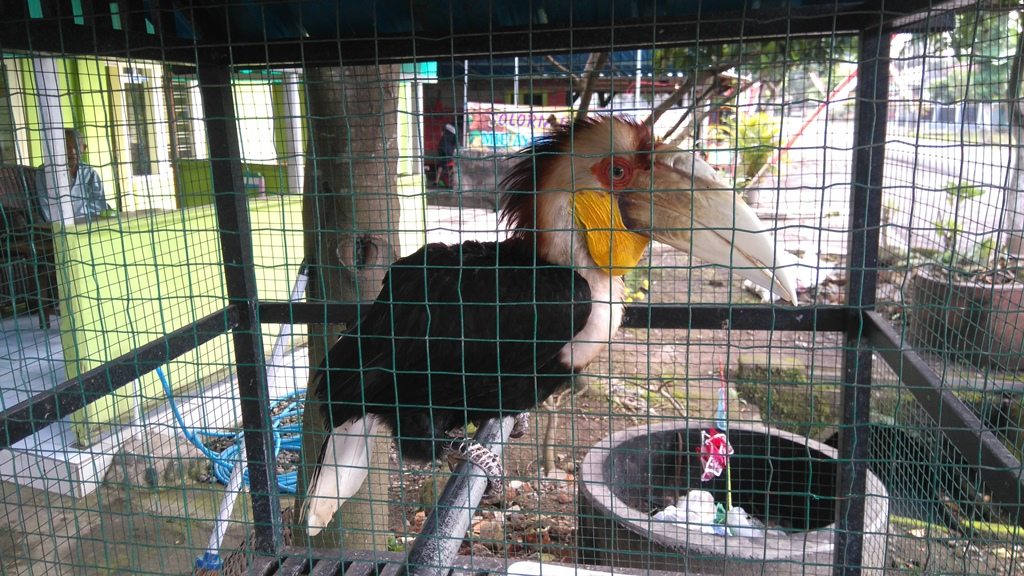
“However, I finally decided that I had to report this case. Laws must be enforced to be effective, otherwise they are meaningless. It is important to make clear to this man that this species is endangered because it is subject to trade. For example, other hornbill species like the impressing rhinoceros hornbill are currently sliding towards extinction because some people like carvings made from the beak. If the man continued to keep his bird, maybe his friends would want a hornbill themselves one day. It was a tough decision, but a good one.
“Only a few hours after I sent the report via Wildlife Witness I got a personal email from TRAFFIC, asking me for more details and ensuring me that the case is followed upon. I could have reported it anonymously, but as this was not a dangerous situation, I was happy for them to contact me. My photos of the wreathed hornbill will be stored in a dataset, and are allowed to be used for conservation purposes. I hope my report can help this individual hornbill, and ultimately the species, and that this story will encourage more people who travel to South East Asia, to use the app Wildlife Witness.”
In collaboration with a variety of academic institutions we support research students. These Chester Zoo conservation scholars are working to provide evidence on a range of topics, both here at the zoo and in the field.
One of our conservation scholars, Nick Harvey, has just started his PhD studying the conservation of large herbivores. The main focus of his research is the eastern black rhino, and how methods of hormone monitoring that were developed here at Chester Zoo can be used to help wild populations in Kenya grow. Alongside this, he is also interested in the aims of large herbivore conservation, what the goals are and how to work towards achieving them successfully.
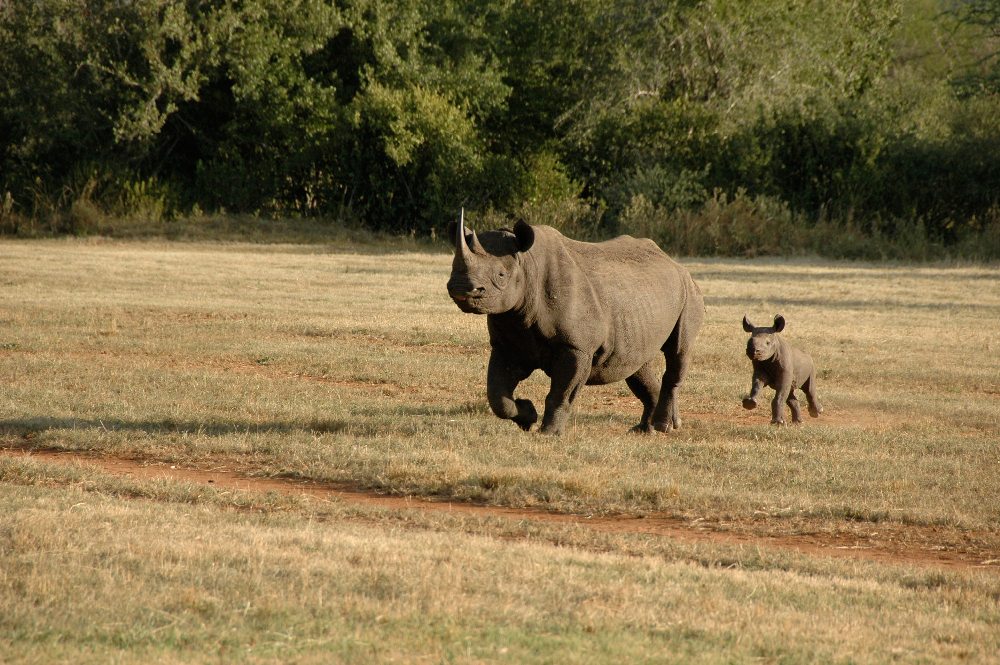
Here Nick tells us more about his research below and how he needs your support with his PhD:
“Some of the world’s most spectacular species are the mega-herbivores; these are herbivores that weigh over 1000kg. At Chester Zoo the mega-herbivores that we’re working to save from extinction include black rhinos, Indian one-horned rhinos and Asian elephants. All have suffered drastic population declines in recent decades, mainly due to the current poaching crisis.
“Here at the zoo we are carrying out research to help ensure the survival of these amazing species, and we need your help! As a supporter of Chester Zoo, it’s people like you who are the driving force behind conservation, so we want to know your thoughts on the conservation of these incredible giants.
“Below is a link to a survey I’ve designed as part of my scientific research, so you can give your views on this subject and your opinion on the role of zoos in conservation.
“There are no right or wrong answers to the questions; we are looking for your honest opinions. Your response to this is completely anonymous; your name will not be attached to your survey. The last page requests a few details about yourself and will help in our analysis, but are optional for you to fill in.
“We will be sharing this survey with those working in conservation too and all the answers I receive will be analysed and used as part of my PhD with The University of Manchester, which Chester Zoo is supporting. They will also potentially be written up into a paper published in a scientific journal. So by completing the survey you can directly contribute to the conservation of rhinos and elephants! Thanks in advance for your time – I look forward to sharing updates with you as my research develops.”
You can download a Participant Information Sheet here which will provide you with more information about the survey, what the data will be used for and who to contact if you have any questions.